3rd Sino-US State/Provincial University Presidents’ Forum
The theme of the forum focused on linking education and research to regional workforce development.
The Sino-US CHEPD program is designed for undergraduate and graduate Chinese students to study at participating AASCU member institutions. The program is jointly administered by AASCU and the China Center for International Educational Exchanges (CCIEE). Students who complete the program receive two separate degrees from a US institution and their Chinese home institution.
Participate.
Under the platform of Sino-US Cooperation in Higher Education and Professional Development (CHEPD), with joint administration of the China Education Association for International Exchange (CEAIE) and the China Center for International Educational Exchange (CCIEE) in China, AASCU is proud to offer the Sino-American CHEPD 1+2+1 Program.
Since 2001, this program has provided the opportunity for Chinese students to spend up to two years at an AASCU institution to pursue undergraduate and graduate studies. Participants then receive two separate degrees from their Chinese home institution and their U.S. host institution.
The CHEPD 1+2+1 Program has become the largest and most successful program of its kind. Recognized by the Chinese Ministry of Education as a Program of Excellence, it is one of most important platforms for cooperation between Chinese and American universities.

Our program has built sustainable partnerships for over two decades.
Number of participating institutions – 38 AASCU members, 144 from Chinese partners.
Number of students that have participated.
U.S. campuses have received approximately $400 million in tuition, fees, room and board.
Chinese students who pass the national entrance examination will complete their initial year of study in China. They will study in the US during their 2nd and 3rd years, then return to their Chinese home institution for the final year. After completing all the degree requirements, the student will receive two degrees from both US and Chinese institutions.
First-year graduate students are selected from Chinese universities to spend two or three academic semesters studying in an AASCU member university. They return to their Chinese universities for the final academic year. Qualified students will be granted diplomas and masters’ degrees from both Chinese and U.S. universities.
Students follow the regular 1+2+1 Program, i.e., the International Cohort Program students complete their freshmen year in Chinese university. In the second and third years of the program, students come to the United States to complete their sophomore and junior years at the US partner university. Students return to China to finish their senior year at Chinese university and graduate with two separate bachelor’s degrees from Chinese and American universities. All students participating in this program have already had their four-year curriculum mapped out, through articulation agreements between the two partner institutions.
Learn more about ICP.Students who are not interested in pursuing a degree in the United States, but are seeking study abroad experiences, can apply for the Youth Exchange Student program for one academic semester or one year through US partner institutions. YES students are allowed to transition to 1+2+1 Program degree-seeking status once they are on the US campuses.


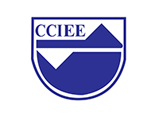
The China Center for International Education Exchange (CCIEE) is an independent legal entity established by China Educational Association for International Exchange (CEAIE), affiliated with the Ministry of education of China. Over the past thirty years, CCIEE has extensively conducted short- and long-term programs such as student exchange, study in China, teaching training, self-funded overseas-study. Aiming at promoting education exchange and cooperation between China and other countries, CCIEE insists on bringing in high-quality foreign educational resources, and facilitating China’s education to be internationalized and worldwide recognized.

Founded in 1981, the China Education Association for International Exchange (CEAIE) is China’s nationwide not-for-profit organization that conducts programs and activities that facilitate international educational exchanges and cooperation. CEAIE is fully committed to promoting the advancement of education, culture, science and technology; and strengthening understanding and friendship among the peoples of all countries and regions of the world.
"*" indicates required fields
"*" indicates required fields
ASSCI provides funding and support through AASCU and the Embassy of China to facilitate partnership building through institutional based faculty-led study abroad programs in China.
Contact us.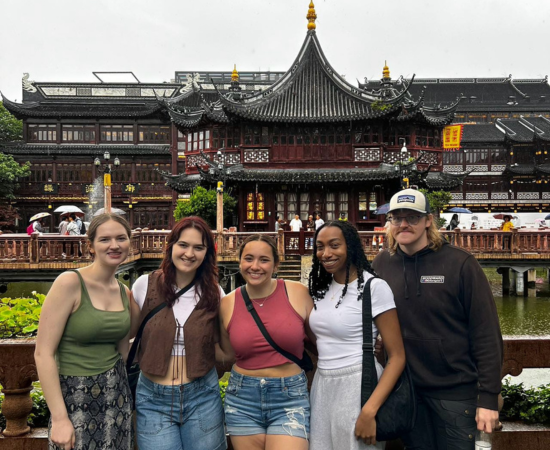
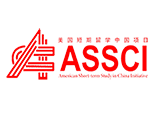 ASSCI supports faculty-led study abroad programs.
ASSCI supports faculty-led study abroad programs.The American Short-Term Study in China Initiative (ASSCI) is a scholarship program offered by the Embassy of the People’s Republic of China in the United States of America and administered by the American Association of State Colleges and Universities. The scholarship will support students enrolled in institutional-based, faculty-led study abroad programs in China. Faculty members with existing China study abroad programs, faculty interested to adding a study abroad component to a pre-existing course, or faculty interested in developing a program for studying abroad in China, are encouraged to submit a funding proposal.
Proposals should be submitted by faculty on U.S. campuses, with support from the provost, along with accompanying approval and signatures from the individual responsible for study abroad programs on each campus.
The ASSCI program focuses on joint efforts between U.S. and Chinese partner institutions. Chinese partners must be recognized by the China Scholarship Council (CSC) [Search Universities & Regions_Universities & Programs_留学中国 (campuschina.org)]. AASCU can assist with identifying Chinese institutional partners. Applicants requiring assistance with identifying a partner to apply for the scholarship should indicate this when completing the application form.
Proposals will be accepted through November 1. Submitted proposals will be reviewed and rated by the Selection Committee organized by the Chinese Embassy and recommended to CSC for approval. Applicants will be notified by December 15.
Students in the program will be eligible to receive the ASSCI scholarship. The scholarship covers the following expenses for each participating student:
The scholarship does NOT cover:
Applicant must be a:
The course must meet the following requirements:
The selection committee will use several criteria when reviewing applications:
Complete and submit the Proposal Form and Nomination Form before November 1, 2024
Visit the China Scholarship Council website for more information about the scholarship.
China Scholarship Council
Instructions for students who are admitted in a study abroad in China program on your campus and the teaching faculty will work with you to fill out the ASSCI scholarship application.
ASSCI application instructions.
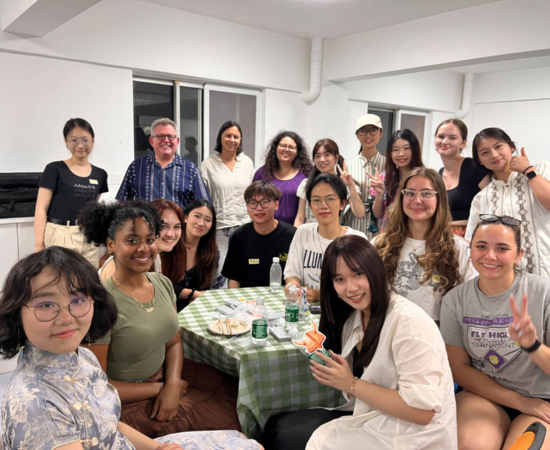
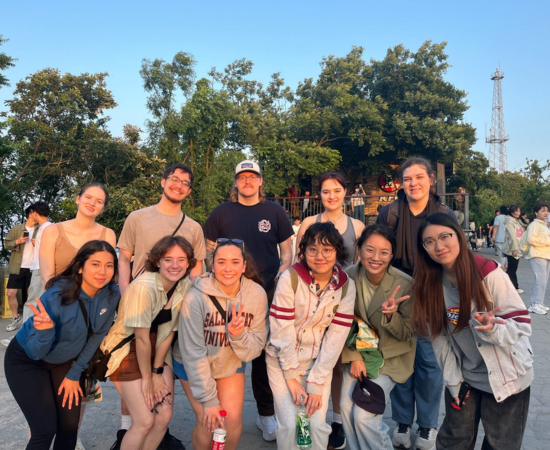
If you would like to be considered for the next program cycle, please contact Sufei Li.
Faculty in any discipline can apply for the ASSCI program. The students in the program are qualified to apply for the scholarship automatically once the program is approved.
The scholarship for each student covers tuition paid to the Chinese partner institution, accommodations, a monthly stipend, and comprehensive medical insurance. The value of each scholarship for a four-week program could be approximately $10,000 or more.
Part of the scholarship, such as tuition fees, accommodation fees, and comprehensive medical insurance, goes to the host university directly. The student receives a monthly stipend upon arriving at the Chinese campus.
Yes. You will need to state that you have no partner and you’re requesting assistance in the proposal form. AASCU will work with the Chinese embassy to find a matching partner for the program. Once you accept our recommendation and work out the articulation plan with the recommended partner, we will continue to work on your application for funding.
Once your proposal is approved, all students registered for the course are qualified to apply. However, the student applicant must be a full-time student who is not a Chinese citizen.
You will need to renew your program with the embassy if there is no change to the previously approved program. The renewal process is simple. The purpose of renewal is for the embassy to have a record of the program each year. If there are changes at the partner institutions in China, such as different teaching faculty, altered course description or delivery methods, etc., you will need to submit a new proposal for approval. Your students will also need to apply for the scholarships through CSC’s online application every year to participate and receive the scholarships.
Only eligible students can apply for the scholarship. The leading faculty member is responsible for all the expenses, including international travel, room, and board in China. It is possible that your partner university will be able to cover room and board. However, these costs are not considered part of the scholarship program.
There are no limits and restrictions for institutions. We welcome faculty members in any major as long as the proposal reflects the goals, and the teaching curriculum involves joint activities of the program that contribute to those goals. Multiple faculty members from one institution could submit individual proposals for separate funding as long as they have partners in China.
"*" indicates required fields
The Japan Studies Institute (JSI) is a unique multidisciplinary professional development program designed to help faculty and administrators integrate Japanese studies into their institutions.
Apply by Feb. 28.
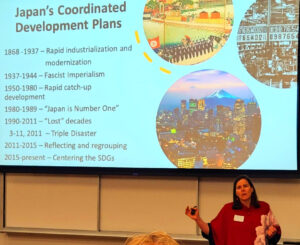
JSI offers a unique environment for educators and administrators to deepen global studies capacity, intercultural learning and enhance your campus internationalization efforts. The program equips participants with the tools and knowledge to incorporate Japanese studies into the undergraduate curricula and co-curricular activities.
JSI is ideal for faculty and staff with little or no prior experience in Japanese studies. Through immersive learning and collaboration, participants gain practical insights into Japan’s history, culture, and modern society. By participating in JSI, individuals will acquire the expertise and resources needed to inspire student learning about Japan and global awareness in any academic discipline.
Participants live and work together over two weeks at San Diego State University, fostering a vibrant residential community focused on collaborative learning. This intensive, hands-on format encourages a supportive exchange of ideas and builds lasting professional connections.
Engage with Japanese culture, history, business, and social issues through seminars, lectures, and cultural activities. Participants gain a holistic understanding of Japan’s evolving role in global affairs, modern societal shifts, and cultural traditions, equipping them to incorporate these insights into diverse academic disciplines.
Beyond structured sessions, the program includes off-campus excursions, evening gatherings, and cultural experiences that offer an immersive perspective on Japanese culture.
To qualify for this program, applicants must meet the following requirements:
Documents listed below must be submitted by the February 28, 2025 deadline. The application package should include:
Participants in the program are responsible for ancillary expenses related to travel to and from the program site, and all other personal and miscellaneous items.
Is my institution as AASCU member?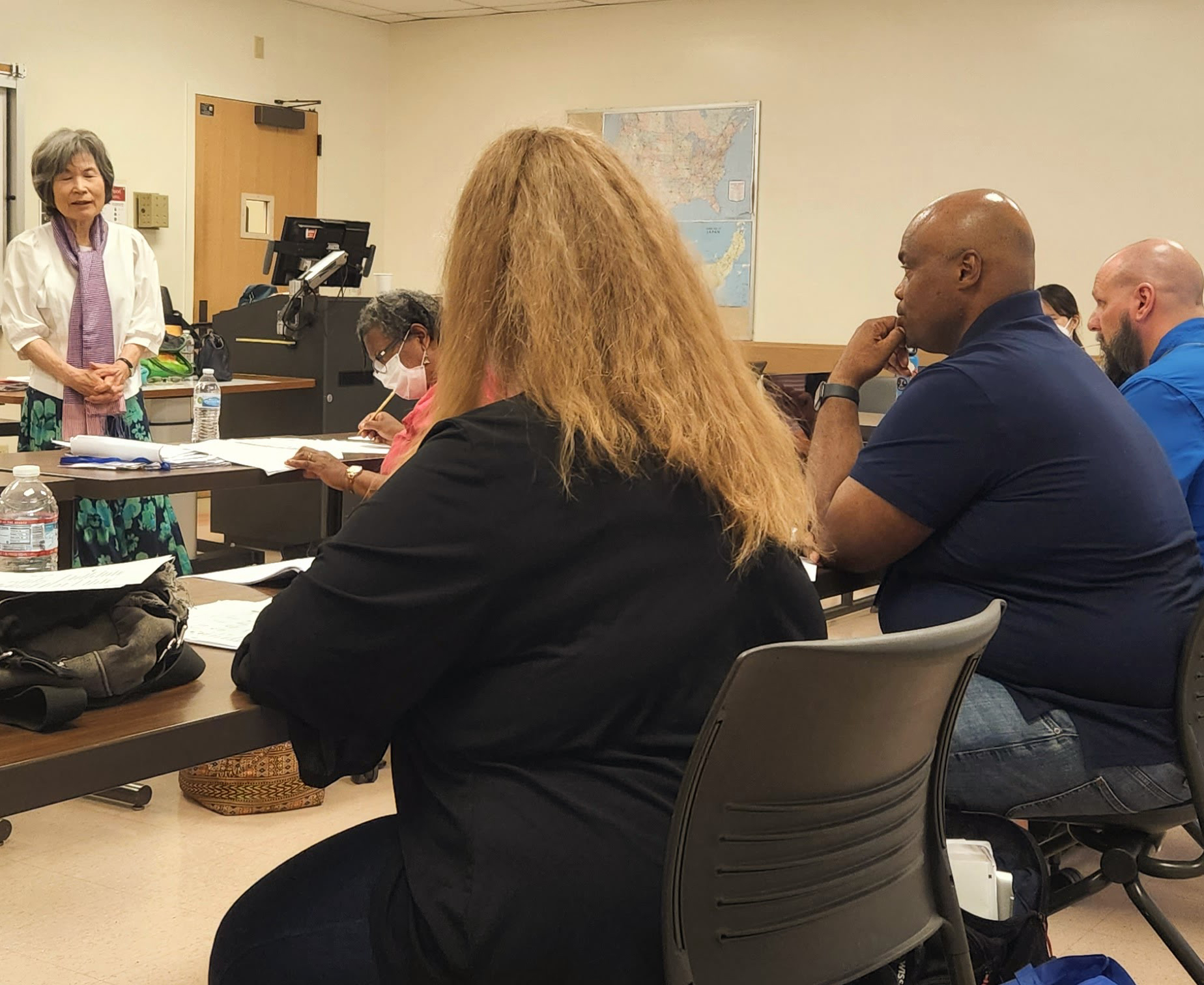
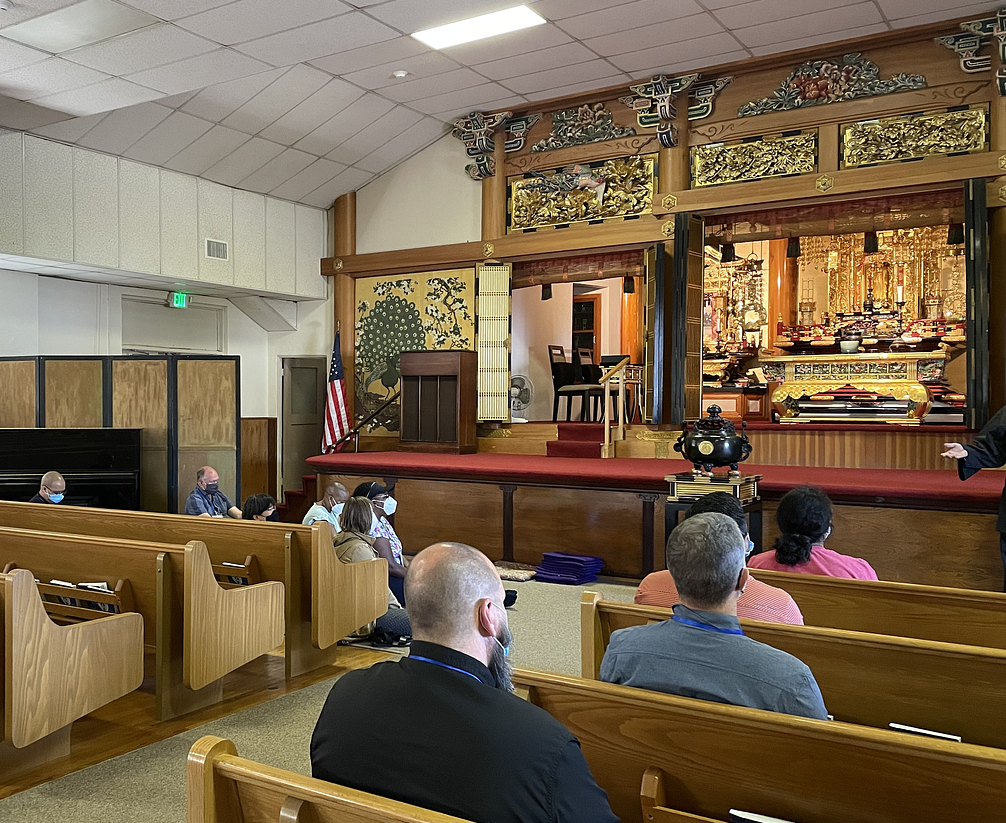
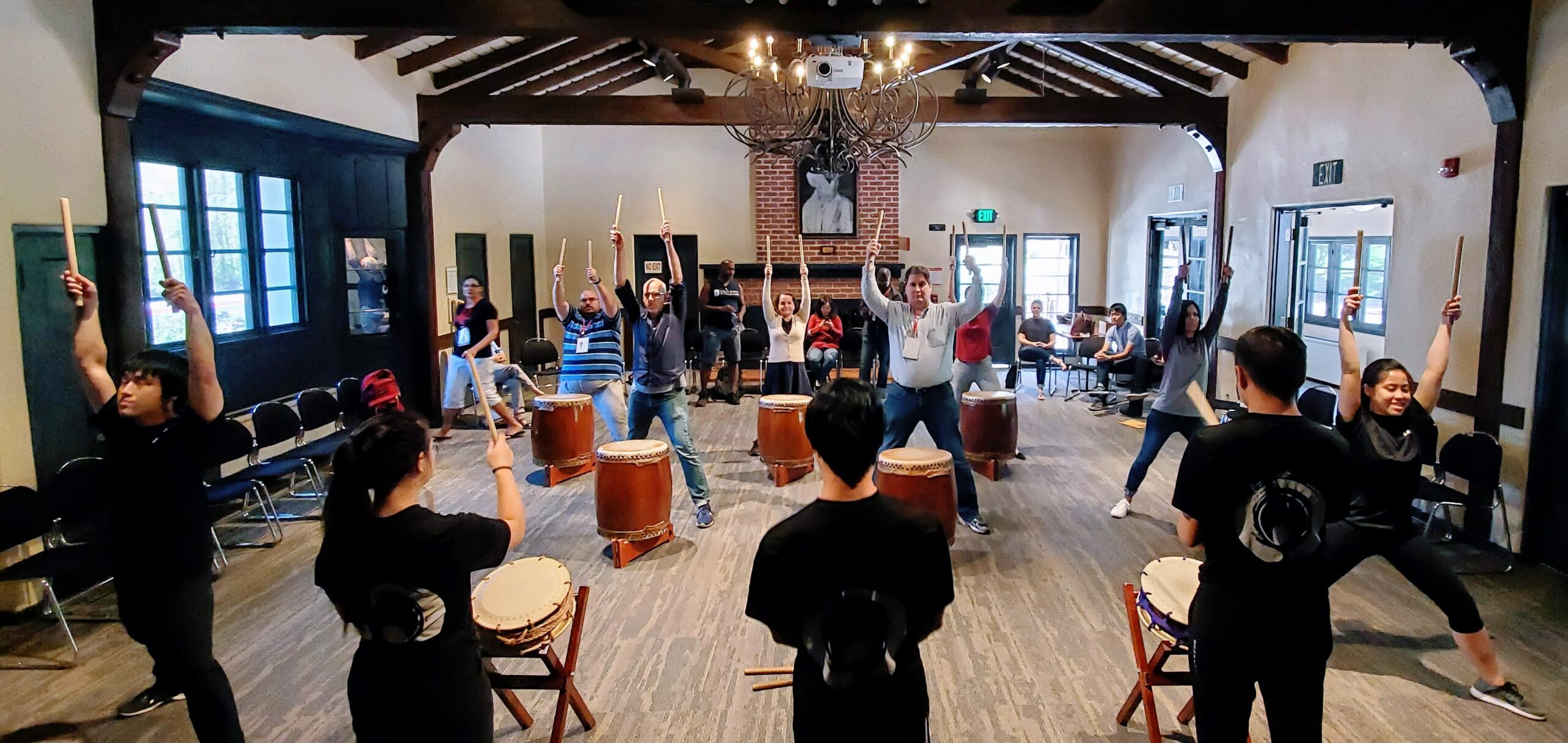
Number of years AASCU has provided this professional development opportunity for its members.
Number of Institutions that have participated in the Institute from across the US, the Bahamas and Canada.
Number of faculty and administrators that have been trained by the Institute.

| 2022 JSI Fellows | ||
|---|---|---|
| William Crawley | Dean, College of Education and Professional Studies | University of West Florida |
| Lucas Foster | Associate Professor, Mathematics | Northeastern State University |
| Sandra Gonsalves-Domond | Professor, Personality and Social Psychology | Ramapo College of New Jersey |
| Abdul Knowles | Director, Global Studies and Programmes | The University of the Bahamas |
| Michael Mays | Professor, English and Director, Hanford History Project | Washington State University |
| Newly Paul | Assistant Professor, Print/Digital Media | University of North Texas |
| Lokesh Shivakumaraiah | Executive Director, International Relations & Assistant to the Provost | Mississippi Valley State University |
| Binod Shrestha | Associate Professor, Studio Art | University of North Texas |
| Leslie Stewart | Associate Professor, Political Science | Delta State University (MS) |
| Robyn Wall | Assistant Professor, Art | Delta State University (MS) |
| Lingling Wang | Assistant Professor, International Business | Worcester State University (MA) |
| Marie Barnas | Associate Professor, Video and Film Production | Middle Tennessee State University |
"*" indicates required fields
The theme of the forum focused on linking education and research to regional workforce development.
AASCU representatives attended the Chinese New Year Celebration at the Chinese Embassy.
AASCU Vice President Dr. Terry Brown quoted.
Article by AASCU President Mildred García.
Notifications